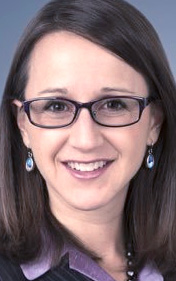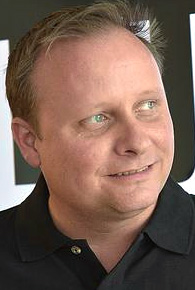

 The current policies for .eu domain name registration restrict registration to organisations, businesses and individuals that meet certain criteria. In order to get a .eu domain name you need to be resident within the EU, Norway, Iceland or Liechtenstein. This is laid out in the current policy... Post-Brexit it is unclear whether UK registrants will still qualify to hold their .eu domains.
The current policies for .eu domain name registration restrict registration to organisations, businesses and individuals that meet certain criteria. In order to get a .eu domain name you need to be resident within the EU, Norway, Iceland or Liechtenstein. This is laid out in the current policy... Post-Brexit it is unclear whether UK registrants will still qualify to hold their .eu domains.
 A dispute policy for the new '.bible' top-level domain name requires panelists who agree to hear cases to affirm that they "enthusiastically support the mission of American Bible Society" and that they "believe that the Bible is the Word of God which brings salvation through Christ." The DotBible Community Dispute Resolution Policy appears to be the first domain name dispute policy that requires panelists to take a religious oath - or, for that matter, an oath other than anything related to maintaining neutrality.
A dispute policy for the new '.bible' top-level domain name requires panelists who agree to hear cases to affirm that they "enthusiastically support the mission of American Bible Society" and that they "believe that the Bible is the Word of God which brings salvation through Christ." The DotBible Community Dispute Resolution Policy appears to be the first domain name dispute policy that requires panelists to take a religious oath - or, for that matter, an oath other than anything related to maintaining neutrality.
 As I wrote in December 2015, some Internet commerce companies - including domain name registries, registrars, advertising providers, social media platforms, payment processors and shippers - are doing right by patients in taking voluntary action against illegal online drug sellers. This is no small feat as 97% of the roughly 35,000 active online drug sellers are operating illegally.
As I wrote in December 2015, some Internet commerce companies - including domain name registries, registrars, advertising providers, social media platforms, payment processors and shippers - are doing right by patients in taking voluntary action against illegal online drug sellers. This is no small feat as 97% of the roughly 35,000 active online drug sellers are operating illegally.
 ASOP (Alliance for Safe Online Pharmacies) is often seen as taking a rather confrontational stance towards domain name registrars, registries and hosting providers. However both ASOP and others, including LegitScript, often cite the assistance they've received from internet industry players in their work. This year ASOP has decided to take this a step further...
ASOP (Alliance for Safe Online Pharmacies) is often seen as taking a rather confrontational stance towards domain name registrars, registries and hosting providers. However both ASOP and others, including LegitScript, often cite the assistance they've received from internet industry players in their work. This year ASOP has decided to take this a step further...
 Back in 2014, hundreds of new Top Level Domains (nTLDs) rolled out into availability. This means that the .com, .gov, and .org extensions that are typically used for business domains were joined by a multitude of other, more specialized extensions such as .attorney, .cars, and .recipes. As a channel partner, it's crucial to know how these new units will influence your presence online.
Back in 2014, hundreds of new Top Level Domains (nTLDs) rolled out into availability. This means that the .com, .gov, and .org extensions that are typically used for business domains were joined by a multitude of other, more specialized extensions such as .attorney, .cars, and .recipes. As a channel partner, it's crucial to know how these new units will influence your presence online.
 First of all, I am biased. I am a common sense thinker who tries to analyze risk and reward based on societal trends and conventional wisdom. Watching the new gTLDs (generic Top Level Domains) launch over the last 2 years reminds me of the circus we are now seeing in the U.S. election. Myself, a self-proclaimed libertarian, can now be labeled as the establishment, while the so-called "outsiders" act and behave like they are not politicians yet seem to be masters of messaging and propaganda.
First of all, I am biased. I am a common sense thinker who tries to analyze risk and reward based on societal trends and conventional wisdom. Watching the new gTLDs (generic Top Level Domains) launch over the last 2 years reminds me of the circus we are now seeing in the U.S. election. Myself, a self-proclaimed libertarian, can now be labeled as the establishment, while the so-called "outsiders" act and behave like they are not politicians yet seem to be masters of messaging and propaganda.
 On March 25th, 2016, the Ministry of Industry and Information Technology (MIIT) officially posted its revisions to the "Chinese Measures for the Administration of Domain Names" (2016 edition) for public comment. A decade has gone by since the latest administration measures were introduced in 2004 (2004 edition). Registries and registrars have been longing to see this update for a while, and it is therefore no surprise that the new edition has drawn substantial attention at home and abroad.
On March 25th, 2016, the Ministry of Industry and Information Technology (MIIT) officially posted its revisions to the "Chinese Measures for the Administration of Domain Names" (2016 edition) for public comment. A decade has gone by since the latest administration measures were introduced in 2004 (2004 edition). Registries and registrars have been longing to see this update for a while, and it is therefore no surprise that the new edition has drawn substantial attention at home and abroad.
 Would you like to hear about how to treat your psoriasis? Where to get a cheap oil change? How to flatten your belly? Achieve a stronger sexual life? Cheap toner? Annuities? Herpes? Bed bugs? Free energy? Varicose-Veins? Herpes? Saggy skin? Arthritis? Overactive bladder? Drug addiction? Herpes? No? Well, that's too bad, because that you are going to hear about it whether you like it or not. Many of the messages about these and other subjects are being carried to you via new gTLDs.
Would you like to hear about how to treat your psoriasis? Where to get a cheap oil change? How to flatten your belly? Achieve a stronger sexual life? Cheap toner? Annuities? Herpes? Bed bugs? Free energy? Varicose-Veins? Herpes? Saggy skin? Arthritis? Overactive bladder? Drug addiction? Herpes? No? Well, that's too bad, because that you are going to hear about it whether you like it or not. Many of the messages about these and other subjects are being carried to you via new gTLDs.
 Come join the discussion on Wednesday 17:15 UTC. Quis custodiet ipsos custodes? As ICANN approaches its 18th birthday, it marks its ascension to adulthood and independence with a new framework of accountability. As we attempt to modernize and empower the organization with oversight of the DNS, the question of "who watches the watchmen?" is on the tip of everyone's tongue.
Come join the discussion on Wednesday 17:15 UTC. Quis custodiet ipsos custodes? As ICANN approaches its 18th birthday, it marks its ascension to adulthood and independence with a new framework of accountability. As we attempt to modernize and empower the organization with oversight of the DNS, the question of "who watches the watchmen?" is on the tip of everyone's tongue.
 Departing ICANN CEO Fadi Chehadé has penned a goodbye letter to the organisation's Board as he prepares to leave this March. The 7-page letter reads like a long list of Chehadé's achievements since he took over the helm in 2012. Whilst there can be little doubt about Chehadé's tireless energy and dedication to making ICANN a more effective governance mechanism for the Internet, his celebration of the last four years seems to overlook one important opportunity.
Departing ICANN CEO Fadi Chehadé has penned a goodbye letter to the organisation's Board as he prepares to leave this March. The 7-page letter reads like a long list of Chehadé's achievements since he took over the helm in 2012. Whilst there can be little doubt about Chehadé's tireless energy and dedication to making ICANN a more effective governance mechanism for the Internet, his celebration of the last four years seems to overlook one important opportunity.